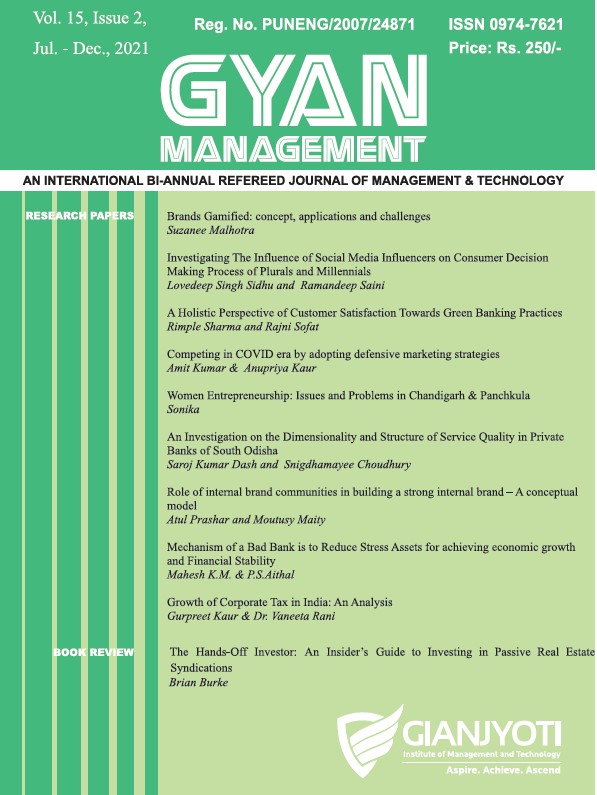A case study on beliefs of Organic food consumers
DOI:
https://doi.org/10.48165/gmj.2022.16.2.4Keywords:
Organic food, Beliefs, Case studyAbstract
Nowadays, consumers are attempting to make conscious food decisions and favour organic food over its alternatives. An increasing number of research studies show the interest of the academic sector in exploring this changed attitude. Due to their importance in attitude formation, the need arises to comprehend the beliefs of the organic food consumers in depth. The current study tries to explore consumers’ beliefs (behavioural beliefs, normative beliefs, and control beliefs) about organic food in detail. As the exploration of these beliefs requires specific observations, this study is based on qualitative data focusing on consumers’ beliefs about organic food. Data is collected through personal interviews with the respondents in five cities of Punjab and Haryana with a total of 20 participants. Results indicate that consumers perceive organic food as healthy, chemical-free and tasty. High price emerged as a major control belief which limits their purchase and family is most influential in their purchase decisions. The results imply that a quantitative study on beliefs about organic food would be useful to investigate these findings in a larger sample since these findings have several marketing and advertising implications.




